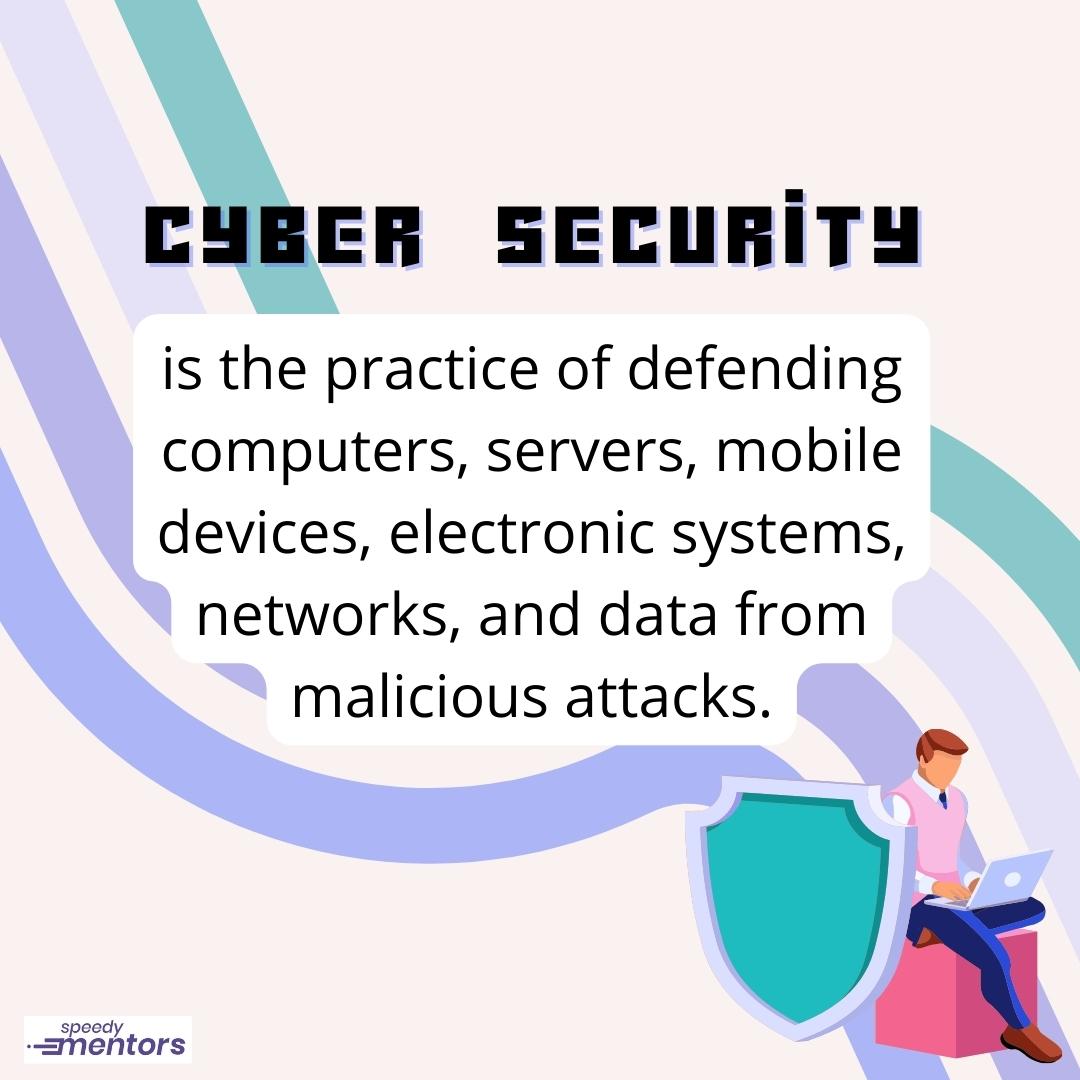
How Being in a Mentoring Relationship Benefits You as a Mentor
![]()
![]() 4 yrs ago
4 yrs ago
When you decide to become a mentor, you might think that the relationship only benefits the mentee. After all, mentees are often at the receiving end of this arrangement, while the mentors are there to provide guidance and advice based upon their own experiences, be it in their personal or professional lives. Yet, you have to know that mentorship is a two-way street. As much as a mentee gains from the mentor’s wisdom and experience, a mentor also stands to reap rewards from the relationship. In fact, for many mentors at Speedy Mentors, they all agree that mentorship is a powerful professional growth tool that helps them build their knowledge, leadership skills, connections and sense of empathy and accountability. We can’t stress enough how mentorship has obvious benefits to both mentors and mentees. So if you are still not sure if being a mentor is a role you should pursue, we have put together this simple guide to help you make an informed decision. Go over it and learn about the following: Understanding mentorship and the role of a mentor What makes a good mentor? Reasons you need to become a mentor Fostering successful mentoring relationships Mentorship is a one-on-one relationship that depends on sharing wisdom. It also provides a safe environment for people to express their ideas, opinions, goals, frustrations and fears as they navigate changes in their personal life or career. The best form of mentorship comes from an engagement wherein both the mentor and mentee are able to teach and learn something from each other. In a mentorship, the mentor is someone who helps the mentee grow, develop or progress in either their personal or professional life. They tap into their own experience and expertise to provide useful guidance and advice that the mentee can use to amplify their skills and achieve their goals. A good mentor needs more than just being successful in their craft. They should also be motivated and committed enough to help develop other people. Additionally, they should be willing and able to share their own experiences—both wins and failures—as doing so demonstrates their strong desire to see another person succeed while avoiding the same pitfalls they made. Based on our experience here at Speedy Mentors, majority of good mentors possess the following qualities: Relevant knowledge and skills in the area where the mentee might be lacking and wishes to progress. Genuinely interested to see someone else succeed. To contribute in attaining that success, they listen without judgement; provide honest feedback and from an expert viewpoint; and give access to resources that can be of value to their mentee, including their network. Availability to commit their time and energy to make the mentoring relationship work. Willingness to share both their wins and failures to fuel learning and teach accountability. Open to learning new things and accepting different perspectives because they are a lifelong learner with a growth mindset. Now that you understand what mentorship is all about and what being a mentor entails, you are likely wondering what assuming a mentor role could bring to you. In that case, consider these additional advantages to realize the true rewards of helping others work towards achieving their goals. Build your leadership capacity As mentioned earlier, mentorship is based on sharing wisdom. While you, as the mentor, provide most of the guidance, advice and support in the relationship, your mentee can also teach you a thing or two along the way. How so? In order to teach someone, you need to become a master of the subject. You also need to observe how your mentee progresses and take note of the areas where they are struggling and succeeding. By doing these things, you get to reflect on your own mentoring strategies, along with your leadership and management practices. You then get to fine-tune them not just to become a better version of yourself, but also to become a better role model for your mentee. Take note that the leadership skills you inadvertently learn throughout the mentoring relationship are transferable in many personal and professional situations. More and better career opportunities Being able to use your expertise and time to actively help others succeed and exert positive influence on them can bring significant career gains for you. A growing number of studies have shown that people who are involved in mentoring relationships are more likely to get a raise and promotion than those who do not. Likewise, if you are about to change careers, you will have better chances at getting hired. This is because the majority of today’s employers look for prospective employees who are capable of leading and motivating others, taking accountability for their actions, and focusing on achieving their targets and goals. All these are attributes that directly relate to being a mentor. To that end, you may consider asking mentees to provide testimonials about their mentoring relationship with you so as to substantiate your experience and credential as a mentor. This can greatly help as you apply for work. Create a Larger Network As a mentor, you will likely meet mentees from all walks of life. Some of them will work with you for a short time, while others will keep in touch with you for years. This shows that mentorship is an excellent networking tool, and it is a powerful one that lets you get in touch with people that are outside of your circle. Although it is essential to have a network of allies who are already seasoned in their respective fields, connecting with mentees who are just starting out is equally vital. Remember that Millennials are the workforce of tomorrow. There are areas that they have already figured out and areas where they need help with, and that is where you come in. Guiding these mentees will enable you to contribute in shaping tomorrow’s leaders, and that can be valuable to you in the long run. Achieve Personal Satisfaction Reaching out and giving the gift of your wisdom, time and perspective are powerful ways to make a difference in other people’s lives. You never really know how far a mentee will go. So whether your mentee becomes the next big tech leader or someone who has successfully overcome their difficulties or achieved their career goal, the point is that you made an impact in their life and that makes your effort all worth it. Keep in mind that not all mentoring relationships end up successfully. Some break down for multiple reasons, and the cause could be the mentor or mentee or even both. For mentors, a failed mentoring relationship can mean loss of credibility and opportunity for new mentoring assignments. For mentees, it can lead to loss of interest. This can also take an emotional toll for both parties involved that may lead to health issues. To prevent failures and poor outcomes, it pays to work on managing and nurturing the mentoring relationship early on. Here are ways to do that. Establish the relationship structure Take the time to discuss how the mentoring relationship should work. There should be a shared understanding of the process. Be sure to cover such elements as contact and response times, areas of focus, meeting schedule and frequency, confidentiality, goals and accountability, and feedback. Build trust by knowing each other As with any other relationship, a mentoring relationship needs time to develop. That entails knowing each other to build trust that will hold the relationship together. Avoid immediately diving into solving problems and providing advice, as both you and the mentee do not fully understand each other enough for you to be able to figure out the kind of support they require. Articulate expectations Both you and your mentee have expectations upon entering the mentoring relationship. It is important to articulate those expectations so you both know what you want to get out of the experience and what areas you need to focus on. Stay committed and consistent Once the mentorship begins, take charge of the process and stay committed and consistent with everything that both of you discussed at the onset of the relationship. Stick to agreed schedules, assign tasks as needed and provide advice and feedback that can help your mentee grow. Remember that the more you put into the relationship, the more you get out of it and that works both ways for the mentor and mentee. Make reflection and evaluation a part of the relationship Reflection and evaluation are what drives action. Every few meetings or so take the time to reflect on what you and your mentee have done so far. Ask questions like “How are things going for you?” “Which areas do you find helpful and which ones are you struggling with?” “Is there anything I should do differently to improve your mentorship experience?” Engaging your mentee in reflective and evaluative conversations will enable you to better understand their needs and will keep the relationship more valuable. As you can see, being a mentor is an excellent opportunity to make a potentially life-changing difference for yourself and for someone else. If you are ready to engage in this exciting and rewarding endeavor, Speedy Mentors is the right place to get started. Become a mentor today! Understanding mentorship and the role of a mentor:
What makes a good mentor?
Reasons you need to become a mentor
Fostering successful mentoring relationships
Become a mentor and help others grow, develop and progress through Speedy Mentors
Recent Articles

How to Land a Project Management Role With Little to No Experience
If you’re looking to lan...
![]() Dec 28, 2022
Dec 28, 2022

How Do I Land a Role as a Data Analyst with a Very Little Experience?
Are you an aspiring data analy...
![]() Dec 19, 2022
Dec 19, 2022

The Benefits of Gaining Work Experience in the Field of Cyber Security
With the ever-increasing deman...
![]() Dec 16, 2022
Dec 16, 2022

How Work Experience Can Help You Land a Software Tester Role
As software testing becomes an...
![]() Dec 15, 2022
Dec 15, 2022

Business Analyst Roles: Why Work Experience Matters
Business analyst roles are in ...
![]() Dec 14, 2022
Dec 14, 2022

Reasons Why Work Experience is Important When Applying for a Project Manager Role?
It is clear why having work ex...
![]() Dec 13, 2022
Dec 13, 2022

The Importance of Work Experience for Data Analyst Role
Data analysts are an important...
![]() Dec 12, 2022
Dec 12, 2022
How Can You Build Work Experience as Cyber Security Analyst Through Online Internship Program?
Cyber security analysts are in...
![]() Dec 09, 2022
Dec 09, 2022

How Can You Get Work Experience as a Software Tester Through an Online Internship Program?
Software testers are in high d...
![]() Dec 08, 2022
Dec 08, 2022

How Can You Acquire Work Experience as a Business Analyst Through Online Internship Program?
Business analysts play an esse...
![]() Dec 06, 2022
Dec 06, 2022

How Can You Gain Work Experience as a Project Manager Through Online Internship Program?
As the world increasingly move...
![]() Dec 05, 2022
Dec 05, 2022
How Can You Build Work Experience as Data Analyst Through Online Internship Program?
Wondering how you can get star...
![]() Dec 01, 2022
Dec 01, 2022
.png)
Be a Mentor Online - Get Paid for Your Experience and Expertise
Mentoring is more important th...
![]() Apr 15, 2022
Apr 15, 2022
.png)
What is the Purpose of Mentoring?
Mentoring is receiving a lot o...
![]() Mar 28, 2022
Mar 28, 2022
.png)
How to Become a Cyber Security Expert
Cyber criminals are getting mo...
![]() Mar 24, 2022
Mar 24, 2022
.png)
How to Become a Game Developer
In 2021, the gaming industry w...
![]() Mar 11, 2022
Mar 11, 2022
.png)
Why You Need a UX Design Mentor
Whether you want to develop yo...
![]() Mar 07, 2022
Mar 07, 2022

How Do I Become an Expert in Data Science?
Data science is shaping the fu...
![]() Mar 02, 2022
Mar 02, 2022

How Do You Build Expertise in Machine Learning?
Machine learning has come a lo...
![]() Feb 17, 2022
Feb 17, 2022

Benefits of Mentoring Programs in the Workplace
Meeting employees’ individua...
![]() Feb 15, 2022
Feb 15, 2022

How Do You Gain Expertise in Java?
There are a lot of programming...
![]() Feb 11, 2022
Feb 11, 2022
Top Digital Marketing Skills to Learn to Make Yourself Employable
Digital marketing is proven ef...
![]() Feb 07, 2022
Feb 07, 2022

How to Ask Someone to be a Mentor
The benefits of mentoring are ...
![]() Jul 09, 2021
Jul 09, 2021

Getting Interview Coaching to Ace Your Job Search
Interviews are an important pa...
![]() Jun 21, 2021
Jun 21, 2021